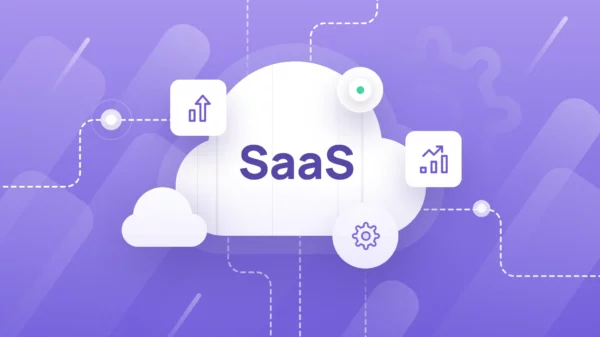Owing to its growing popularity the name ‘Cloud ERP’ might be new but certainly not unknown in this digital arena. The benefits are countless and flexibility is limitless. In the so-called world of digitalization, it has come as an added advantage that brings you up and above your competitors. Cloud, basically, is availing the ERP benefits via a facility called SaaS i.e. Software as a Service. Many small and medium-size enterprises are opting for it due to ease of its operation and maintenance; all at an affordable price. Running ERP on cloud offers flexibility and dynamism with simply having an internet connection and unique credentials to leverage the ERP modules.
The cloud itself is evolving. With dynamic advancements in cloud technology, the time taken from concept idealization to implementation is reducing day by day. Interfaces are becoming faster, cleaner and more accurate – in both desktops and mobile applications. With growing acceptance amongst process manufacturers, cloud ERP is making its mark by not only meeting but exceeding market demands, in return for extremely low setup fees and no hardware investment. Since cloud ERP is a wave today, you must be aware of what, how and why’s of it, read on to know three important things about it.
1. Private Cloud, Public Cloud & Hybrid Cloud
Private cloud: Based on the unique business requirements or driven by concerns around security and compliance, and keeping assets within the firewall, a private cloud is owned and maintained privately by the company or a hosting provider. The owner of the cloud provides flexibility, scalability, provisioning, automation, and monitoring to the client who is using that cloud. Private clouds are usually expensive and not specifically an option for the SMEs but useful for large enterprises.
Public cloud: Big IT service companies such as Microsoft, IBM or Amazon design storage applications known as public clouds and make them available to the general public. They also maintain the cloud space by providing the necessary hardware, load balancing, backup, and security. Public clouds are easy to set-up and generally inexpensive because hardware maintenance and bandwidth costs are funded by the owner. Charges incurred are based on the capacity used by the customer.
Hybrid cloud: A hybrid cloud includes a variety of public and private options with multiple providers. In other words, it is a blend of private cloud and third-party, public cloud services. By deploying the hybrid cloud, you streamline and synchronize each aspect of your business in the most efficient way. With a hybrid approach, you can easily control business operations on an internally managed private cloud while relying on the public cloud as needed; particularly, during predictable outages, scheduled maintenance windows, upgrades, or blackouts.
2. Deployment options: On Premises, Hosted, or SaaS
Based on the size of your organization, budget, and the requirements, the cloud can be deployed in the following ways.
On-Premises (or In-House): The customer remains responsible for the infrastructure, like server hardware, system software, communication channels, etc. and the vendor takes care of the deployment part of the application software, which includes implementation, support, and periodic upgrades.
Hosted: In this case, a third party or hosting provider buys a license for the software. The way to outsource IT operations is called hosting. The hosting provider can be a third party independent company or a division of the company itself. It’s the responsibility of the hosting provider to manage all that it takes to deploy cloud on the client’s location. Usually, they take care of the infrastructure and software deployment as described above.
Software as a Service (SaaS): This way software license and delivery model is combined and hosted by the software provider to deploy cloud ERP on a subscription basis. This is a fixed amount to be paid by the client on a monthly basis based on their usage. This, of now, is the most accepted model.
3. Unmatched Data Security
If you are still operating on a legacy ERP system and your data is stored on data servers locally placed, your information is at risk as it is exposed to the hackers. But cloud ensures decent security for your data and makes it impossible to steal. Since cloud provides unlimited storage space, companies can upload and access data in real-time, allowing greater collaboration among departments. As a lot of crucial and sensitive information is exchanged over the cloud, data security is ensured by encryption and digital signatures. Cloud ERP offers increased security, and unparalleled support, allowing companies to switch to cloud without any hesitation.
Concisely, Cloud ERP is synonymous with flexibility, affordability, and security. It also increases the net productivity because it offers a commitment for uptime, reducing meaning less disruption and unnecessary halts. The cloud ERP proves to be a master solution packed with multiple features and benefits, making a resultant impact on ROI in the business, provided that you select the right deployment option and suitable choice of private, public, or hybrid cloud along with adequate security. One easy way to avail these benefits is BatchMaster ERP on Cloud with striking features that makes streamlining business operations much easier and feasible for not only SMEs but for micro-industries as well.
Sanjay Panjwani, Co-founder & MD BatchMaster Software. A technology enthusiast, he is the brains behind BatchMaster ERP- ERP Software for process manufacturers. An avid outdoorsman by the weekends, he enjoys reading & playing sports too.

























































































































































































